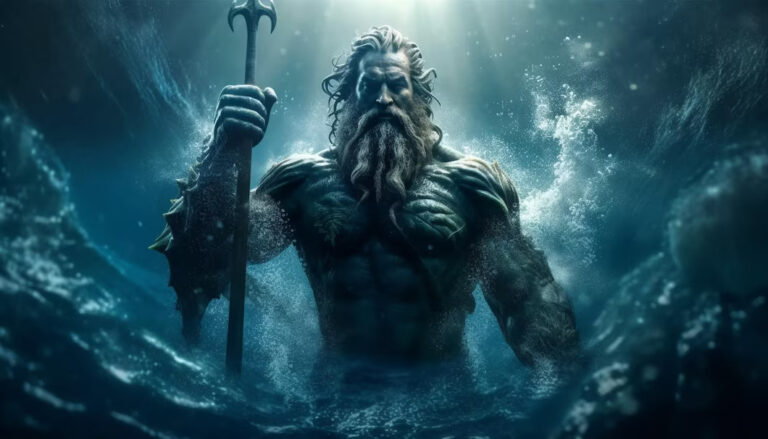Table of Contents
What was Atlantis?
According to Plato’s accounts:
Location: Atlantis was said to be a vast island located “beyond the Pillars of Hercules,” which are generally associated with the Straits of Gibraltar. In other words, it was located in the Atlantic Ocean.
Advanced Civilization: Atlantis was described as a powerful and highly advanced civilization. It was said to have a magnificent capital city and a technologically sophisticated society.
Hubris and Destruction: The downfall of Atlantis was attributed to its own hubris and arrogance, leading the gods to punish the civilization. It was said to have ultimately been submerged beneath the ocean in a cataclysmic event.
Atlantis, as described by Plato, is not a confirmed historical location. While his writings are respected, they are often seen as allegorical or philosophical rather than literal accounts. Atlantis has since become a subject of much speculation, theories, and exploration, with many people searching for its possible location.
There have been various theories and claims about where Atlantis might have been situated, but none have been conclusively proven. Atlantis has also captured the imagination of writers, researchers, and enthusiasts and has been a popular theme in literature, pseudoscience, and popular culture. Its existence remains a matter of ongoing debate and mystery.
What Happened to the Paradise Land?

Garden of Eden (Christian and Jewish Tradition): In the Christian and Jewish traditions, the Garden of Eden was a paradise where the first human beings, Adam and Eve, lived in a state of innocence and harmony with God. Their disobedience to God’s command led to their expulsion from the garden, and it became a symbol of the loss of human innocence.
Elysium (Greek Mythology): Elysium was a paradise in Greek mythology reserved for heroes and those deemed worthy by the gods. It was a place of eternal happiness and bliss for the virtuous souls. Those who were favored by the gods were said to be taken to Elysium upon their death.
Asgard (Norse Mythology): In Norse mythology, Asgard was one of the Nine Worlds and was inhabited by the Aesir gods. It was a paradise-like realm of divine beings. The fate of Asgard is intricately connected to the events of Ragnarök, a great apocalyptic battle that would lead to its destruction and rebirth.
The Golden Age (Various Mythologies): Many cultures have myths and legends of a “Golden Age” in the distant past, marked by peace, prosperity, and harmony. The end of the Golden Age is often attributed to human actions or divine intervention.
These are just a few examples of paradise lands and their fates in different mythologies and traditions. The stories and beliefs about what happened to these paradises vary widely and hold cultural and theological significance in their respective contexts.
Was Atlantis An Allegory or Actuality?
Plato’s Intent: Plato’s accounts of Atlantis are primarily found in his philosophical dialogues. While Plato is considered one of the most significant philosophers in Western thought, it’s important to recognize that his writings often contain allegorical elements and are not necessarily meant to be historical records. Some scholars argue that Plato used Atlantis as a literary device to convey philosophical or moral lessons.
Lack of Archaeological Evidence: Despite numerous efforts to locate Atlantis, no concrete archaeological or geological evidence has been found to confirm its existence. This absence of empirical evidence has led many scholars and researchers to view Atlantis as more likely a philosophical or literary creation rather than a historical reality.
Interpretations and Theories: Over the centuries, numerous theories and interpretations have emerged regarding the possible location of Atlantis. Some have suggested that Atlantis may have been inspired by ancient Minoan or Mycenaean civilizations, while others have proposed that it could be a symbol of a lost, advanced civilization. These theories are often speculative and lack definitive evidence.
In summary, the nature of Atlantis—whether it was an allegorical invention by Plato, a lost historical civilization, or something in between—remains a subject of ongoing debate and mystery. While some continue to search for evidence of Atlantis, it is important to approach the concept with a degree of skepticism and to recognize the allegorical and philosophical dimensions present in Plato’s original accounts.

Where is the lost city of Atlantis located?
Santorini (Thera): One theory suggests that the island of Santorini in the Aegean Sea could be the basis for the Atlantis legend. Santorini experienced a massive volcanic eruption around 1600 BCE that led to the destruction of the Minoan civilization. Some believe this event might have inspired the Atlantis story.
Minoan Civilization: Another theory links Atlantis to the Minoan civilization on the island of Crete, which was a highly advanced and sophisticated society that existed in the Bronze Age. The eruption of Thera and the subsequent decline of the Minoans have been suggested as a possible inspiration for the Atlantis myth.
Azores: The Azores, a group of islands in the North Atlantic Ocean, have also been proposed as a potential location for Atlantis. Some theories claim that these islands were once part of a larger landmass that might have matched the Atlantis description.
Caribbean: Some have suggested that Atlantis could be located in the Caribbean, potentially on the seabed between the islands of the Caribbean. This theory is based on the idea that ancient seafaring civilizations could have reached the Americas.
Indonesia: A more recent theory suggests that Atlantis might have been situated in the region of modern-day Indonesia, where a variety of geological and archaeological evidence is proposed to support the idea.
It’s important to note that these proposals are speculative and often lack concrete archaeological evidence. The search for the lost city of Atlantis continues to capture the imagination of researchers and enthusiasts, but as of my knowledge cutoff date in September 2021, Atlantis has not been definitively located, and its existence remains a matter of debate and mystery.
Atlantis FAQ
Where is Atlantis?
According to Plato, Atlantis was said to be located "beyond the Pillars of Hercules," often associated with the Straits of Gibraltar, placing it in the Atlantic Ocean.
What happened to Atlantis?
Atlantis met its downfall due to its own hubris and arrogance, leading the gods to punish the civilization. The island was said to have been submerged beneath the ocean in a cataclysmic event.
When did Atlantis sink?
Plato's accounts do not provide a specific historical date for the sinking of Atlantis. The concept of Atlantis, as described by Plato, is not considered a confirmed historical location, and its existence remains a matter of debate and mystery.
Where is the Lost City of Atlantis Located?
The location of the lost city of Atlantis is unknown and remains one of history's unsolved mysteries. Various theories propose locations such as Santorini, the Minoan civilization, the Azores, the Caribbean, and Indonesia. These proposals lack concrete archaeological evidence, and the search for Atlantis continues to be speculative and elusive.




